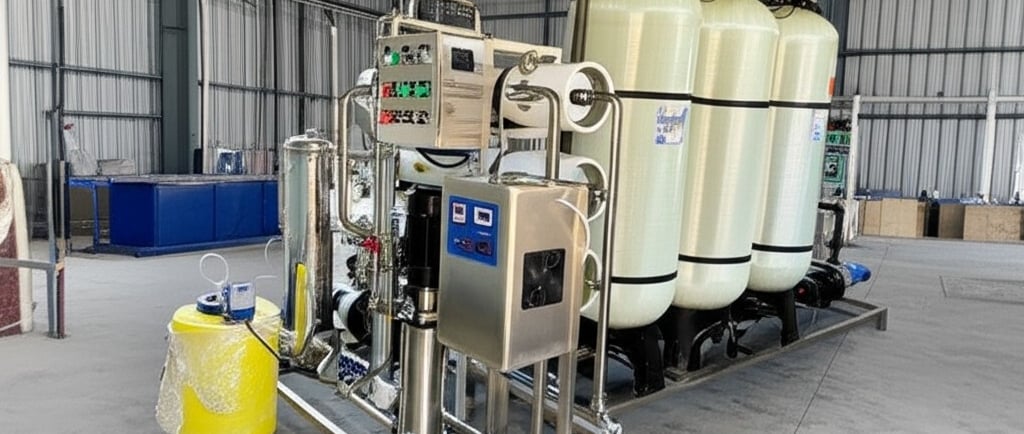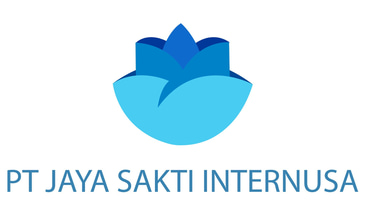The Role of Reverse Osmosis in Industrial Water Recycling Programs


Water scarcity has become one of the most pressing challenges for modern industries. As demand for clean water continues to rise, companies are under pressure to optimize water use, reduce waste, and comply with strict environmental regulations. Industrial water recycling has emerged as a sustainable solution, and at the core of these programs lies one of the most reliable technologies: reverse osmosis (RO).
Reverse osmosis has been widely adopted across industries because of its ability to remove impurities, dissolved salts, and contaminants, producing high-quality water suitable for reuse. In this article, we will explore the role of RO in industrial water recycling, its advantages, and why partnering with trusted providers like PT Jaya Sakti Internusa ensures long-term success.
Understanding Industrial Water Recycling
Industrial water recycling refers to the process of treating and reusing wastewater generated by industrial operations. Instead of discharging water into the environment, companies treat it through advanced systems, making it suitable for reuse in processes such as cooling, cleaning, or even as boiler feedwater.
This approach reduces dependence on freshwater sources, helping industries cut costs while demonstrating environmental responsibility. It also aligns with national and global sustainability goals. For example, Indonesia emphasizes responsible water management under its environmental policies, regulated by the Ministry of Environment and Forestry.
Recycling programs also allow industries to maintain compliance with wastewater discharge regulations, protecting ecosystems while securing long-term access to reliable water supplies. Reverse osmosis, as part of this framework, plays a critical role in ensuring the quality of recycled water meets the strict standards required for industrial use.
What Is Reverse Osmosis and How Does It Work?
Reverse osmosis is a water purification technology that uses a semi-permeable membrane to remove impurities and contaminants. By applying pressure, water molecules pass through the membrane while dissolved salts, heavy metals, and other pollutants are rejected. The result is purified water that can be safely reused in sensitive industrial applications.
RO is particularly effective because it addresses both dissolved and suspended solids, making it more comprehensive than traditional filtration methods. Industries benefit from its ability to consistently produce high-purity water, which is critical for processes such as food production, pharmaceuticals, power generation, and electronics manufacturing.
The system is versatile and can be tailored to different needs. Whether treating raw water, brackish water, or wastewater, reverse osmosis provides a scalable solution that supports both small and large-scale industrial operations.
Advantages of Reverse Osmosis in Industrial Recycling
Integrating reverse osmosis into water recycling programs offers multiple advantages for industries:
High Water Recovery: RO systems maximize water reuse, reducing the demand for freshwater intake.
Improved Water Quality: By removing up to 99% of dissolved salts and contaminants, RO ensures stable and reliable water for sensitive operations.
Energy Efficiency: Modern RO systems are designed for lower energy consumption, reducing operating costs.
Regulatory Compliance: Industries can meet strict discharge and water reuse regulations with confidence.
Environmental Responsibility: RO reduces the environmental footprint by limiting wastewater discharge and conserving water resources.
These benefits make reverse osmosis one of the most effective technologies for industries aiming to combine efficiency with sustainability.
Reverse Osmosis as a Driver of Industrial Sustainability
Sustainability has become central to business strategies, and water is a critical part of this agenda. With global initiatives encouraging industries to reduce water consumption and minimize waste, RO serves as a cornerstone technology for achieving these targets.
By enabling water reuse, RO reduces reliance on freshwater sources that are often limited or contested. It also lessens the volume of wastewater that needs treatment or disposal, lowering costs and reducing environmental impact. For industries in water-stressed regions, this technology can mean the difference between stable operations and production interruptions.
Companies that integrate RO into their recycling programs also benefit from enhanced corporate responsibility. Demonstrating commitment to sustainable practices builds trust with regulators, communities, and stakeholders, strengthening a company’s long-term position in the market.
Challenges Without Reverse Osmosis
While industrial water recycling can be achieved using a variety of technologies, neglecting reverse osmosis often leads to inefficiencies. Without RO, treated water may still contain dissolved salts or contaminants that affect industrial equipment and processes. For example, boilers and cooling towers are highly sensitive to water quality, and poor treatment can cause scaling, corrosion, or biofouling.
These issues increase maintenance costs, shorten equipment lifespan, and raise energy consumption. Moreover, failing to achieve the water quality required by regulations may result in penalties or restrictions on operations. This highlights why reverse osmosis is not just an optional technology but an essential component of a reliable recycling program.
PT Jaya Sakti Internusa: Delivering Reliable RO Solutions
In Indonesia, industries seeking dependable water treatment solutions turn to PT Jaya Sakti Internusa. With expertise in designing and implementing advanced treatment systems, the company ensures that reverse osmosis technology is applied effectively to meet both operational and regulatory requirements.
By combining technical knowledge with a customer-focused approach, PT Jaya Sakti Internusa provides solutions that are tailored to each industry’s specific needs. From system design and installation to maintenance and after-sales service, the company ensures that RO systems operate at peak efficiency over the long term.
This commitment allows businesses to not only optimize their water recycling efforts but also achieve compliance with Indonesia’s strict environmental standards. For industries aiming to balance productivity with sustainability, PT Jaya Sakti Internusa stands as a trusted partner.
The Future of Industrial Water Recycling with RO
As industries grow and water scarcity intensifies, the importance of recycling will only increase. Reverse osmosis is set to play an even greater role in future water management strategies. Advances in membrane technology, energy recovery systems, and smart monitoring tools will make RO systems more efficient, cost-effective, and reliable.
Industries that invest in RO today position themselves for long-term resilience. They will be better prepared to adapt to tightening regulations, rising water costs, and increasing stakeholder expectations for sustainability. By integrating RO into their recycling programs, companies future-proof their operations against uncertainty.
Conclusion: Reverse Osmosis as the Backbone of Recycling Programs
Reverse osmosis is more than just a purification technology—it is the backbone of effective industrial water recycling. By ensuring high water quality, reducing costs, and supporting environmental goals, RO provides industries with a sustainable path forward.
For businesses in Indonesia, implementing RO with a trusted provider like PT Jaya Sakti Internusa ensures reliable, efficient, and compliant water recycling programs. Supported by government policies and global sustainability trends, industries that embrace RO are not only securing their operations but also contributing to a more responsible use of water resources.
In the end, the role of reverse osmosis is clear: it transforms wastewater into a valuable resource, ensuring that industries can thrive in an era where every drop matters.
